Ashura 2014: 3 Things You Need To Know About The Islamic Holy Day [PHOTOS]
Millions of Muslims worldwide are now marking the holy day of Ashura, the tenth day of Muharram in the Islamic calendar. This year, Ashura falls on Nov. 3-4. The Islamic holy day is a voluntary day of fasting that marks the day Noah left the Ark, the time when the Israelites were freed from slavery in Egypt, and the death of Imam Hussein, grandson of Prophet Muhammad.
Sunni and Shiite Muslims – the two major branches of Islam – mark the day in separate ways. For Sunnis, Ashura is considered a day of atonement. Some choose to fast for two days, as the Prophet Muhammad did when he observed Jews doing the same for their Day of Atonement. For Shiite Muslims, Ashura also commemorates the martyrdom of Hussein, grandson of the Prophet Muhammad, in the year 680 at Karbala in modern-day Iraq.
This year, the holy day has taken on new meaning since the Islamic State group, or ISIS, has overrun large parts of Syria and Iraq. Members of the Sunni jihadist group consider all Shiites heretics, and engaged in a campaign of massacres against them. Multiple attacks aimed at Shiites killed more than 40 people in Baghdad two days before Ashura started, Agence France-Presse reports.
For those unfamiliar with Ashura, below are three answers to common questions surrounding the Islamic holy day:
What Is Ashura?
The word “Ashura” means “tenth” in Arabic, since the holiday falls on the tenth day of Muharram, the first month in the Islamic calendar.
Sunni Muslims consider Ashura a day to fast. They see the day as a way to memorialize Allah’s role in saving Moses and the Israelites from the Egyptian pharaoh. Fasting is meant to symbolize Allah’s omnipotence and benevolence. Many Sunni Muslims choose not to participate in overt displays of happiness such as weddings to focus on fasting.
For Shiite Muslims, Ashura is all about the martyrdom of Imam Hussein. In Islamic history, the grandson of the Prophet Muhammad stood up to a tyrant from the Ummayad dynasty, Yazid, in a battle that cost him his life, known as the Battle of Karbala, in 680. Hussein and his small army was massacred by an army sent by Yazid, a ruler whom Shiites consider a usurper of the caliphate, which belongs in their view to the line of Ali, Hussein's father.
“[Hussein] did not run away. He knew why he was there and why he had challenged the authority,” Dr. Aslam Abdullah, director of the Islamic Society of Nevada, wrote in an article for IslamiCity. “He fought bravely and left the world with violent wounds as a testimony of his belief that sometimes in the life of nations come moments when liberty and justice become more important than the life itself.”
Hussein’s death along with that of his father Ali (the son-in-law of the Prophet and the fourth caliph, who was murdered in 661) gave rise to the great schism in Islam between its two main sects: Sunnis and Shiites. This sectarian strife has continued until today, where public Ashura demonstrations have become targets of violence. In 2005, nearly a thousand Shia pilgrims died in a stampede on a Baghdad bridge after a rumor spread that a suicide bomber was in the crowd. In 2013, at least 36 Shia pilgrims were killed in Iraq during Ashura demonstrations. This year, Iraq's Shiite-led authorities sent more than 30,000 troops to Karbala. No attacks were reported.
Common Rituals
On Ashura, Shiite men and women dress in black, slap their chests and chant. Others reenact the Battle of Karbala with mourning rituals. Known as passion plays, the performances include a mourning procession and speeches. Many make a pilgrimage on Ashura to the Mashhad al-Husayn, the shrine in Karbala that is regarded as Hussein’s tomb.
In mosques, poetic lamentations are recited in memory of Hussein’s martyrdom. Prayers are typically said to the tune of beating drums and chanting "Ya Hussein."
Ashura and Self-Flagellation
Some Shiite men flagellate themselves with chains and cut themselves with knives on their foreheads as a way to mourn for Hussein in a ritual called "tatbeer." Hundreds were seen on the streets of Karbala on Tuesday performing the ritual. Some Shiite clerics have condemned the practice and have advocated for donating blood instead.
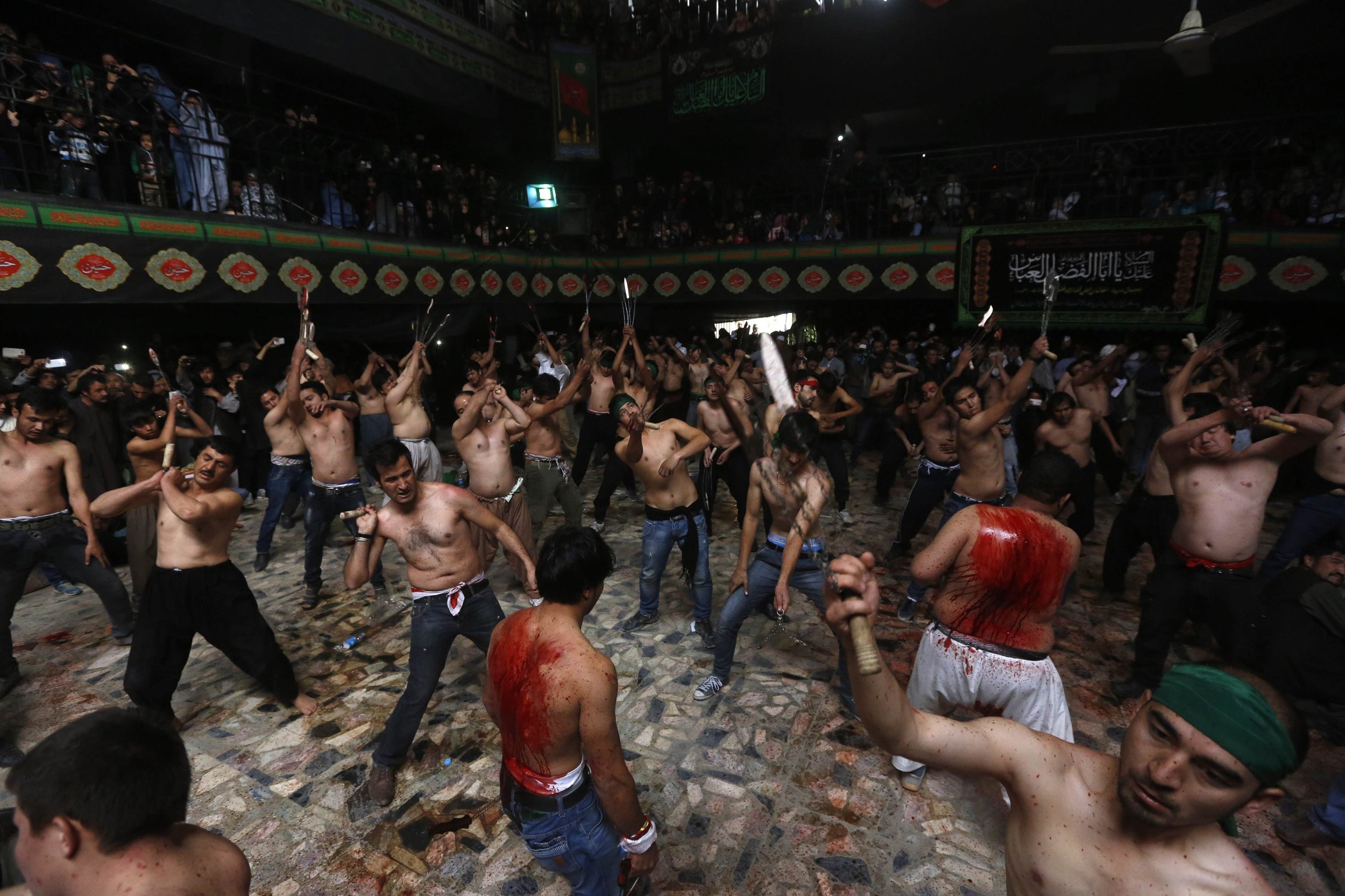
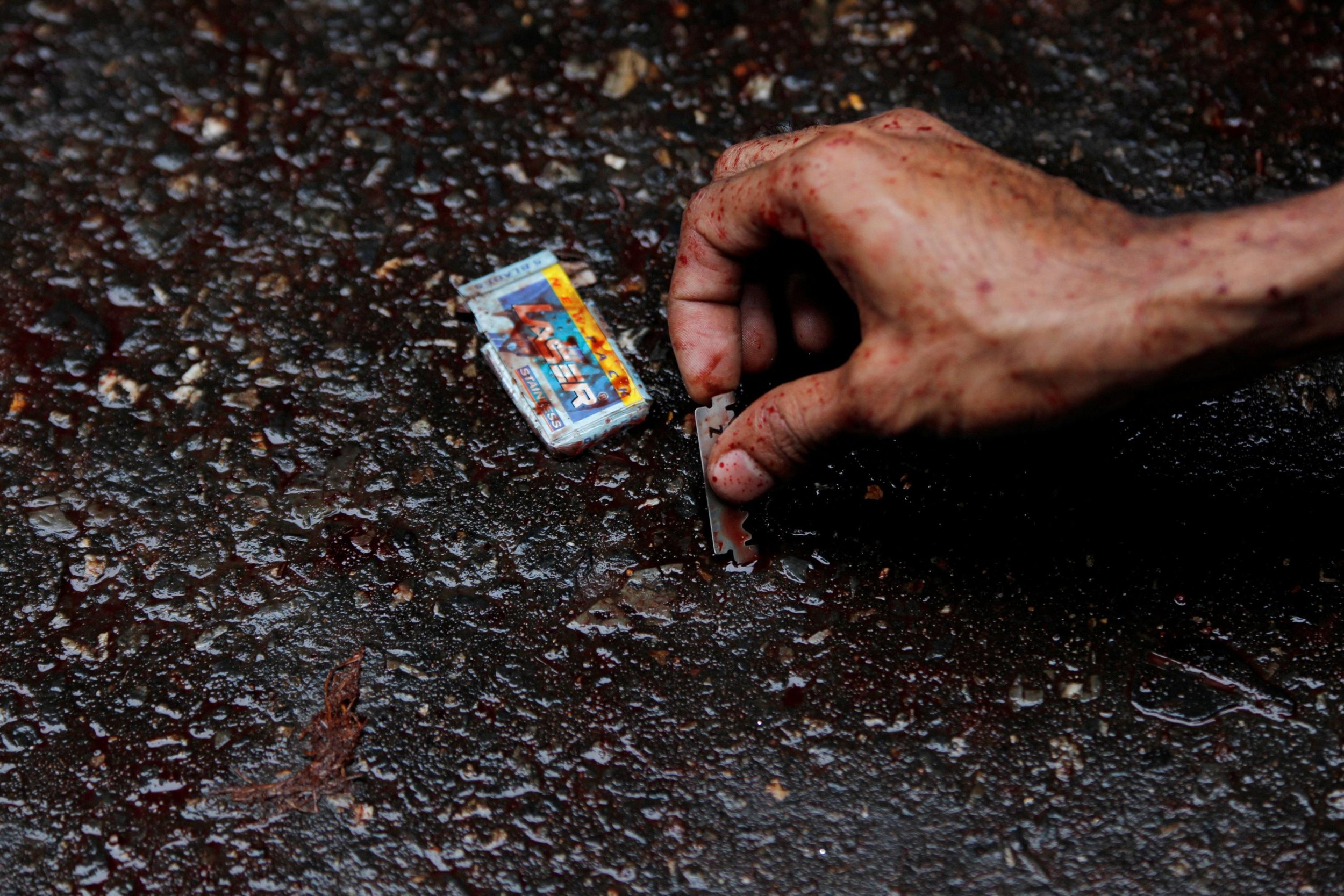
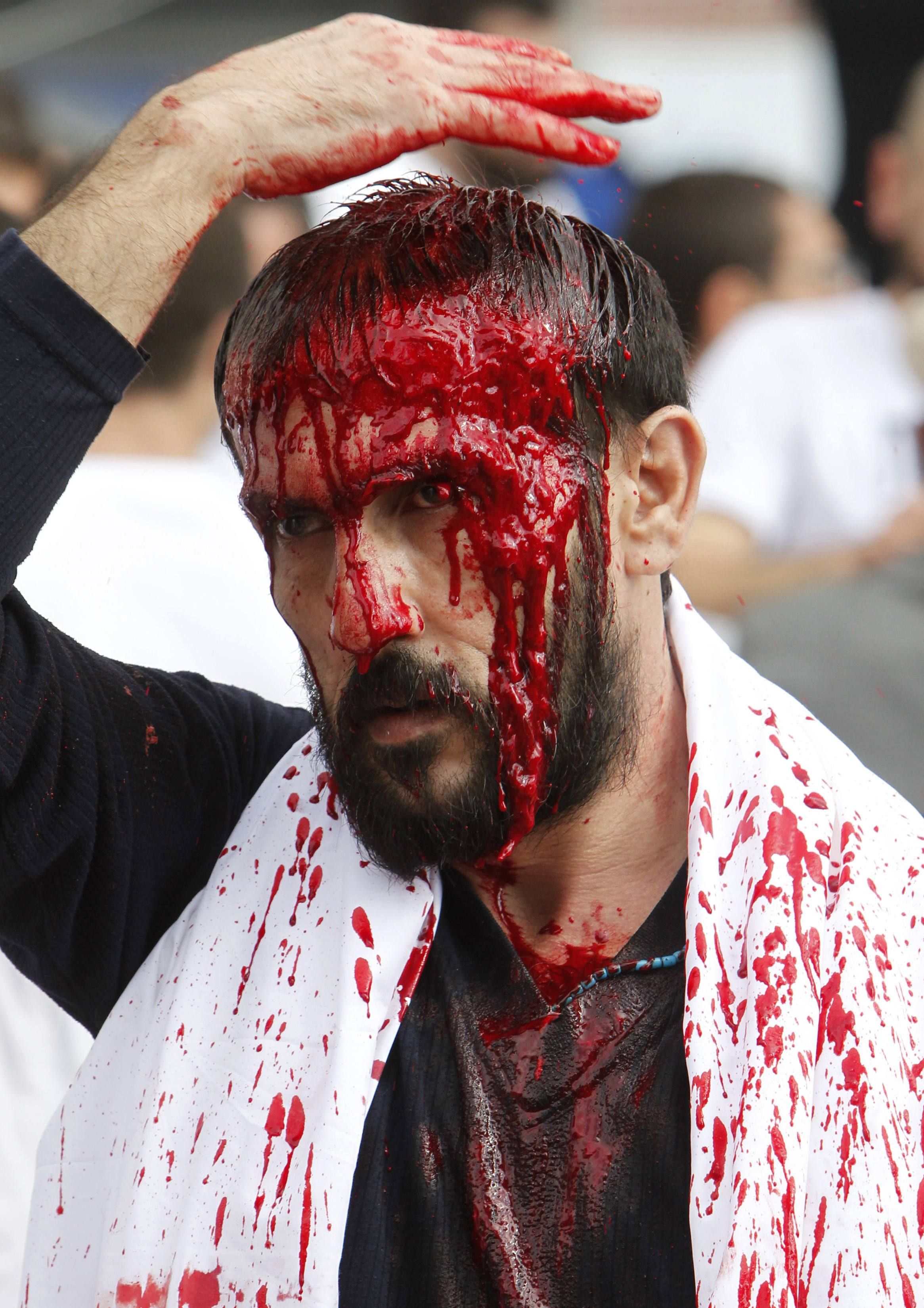
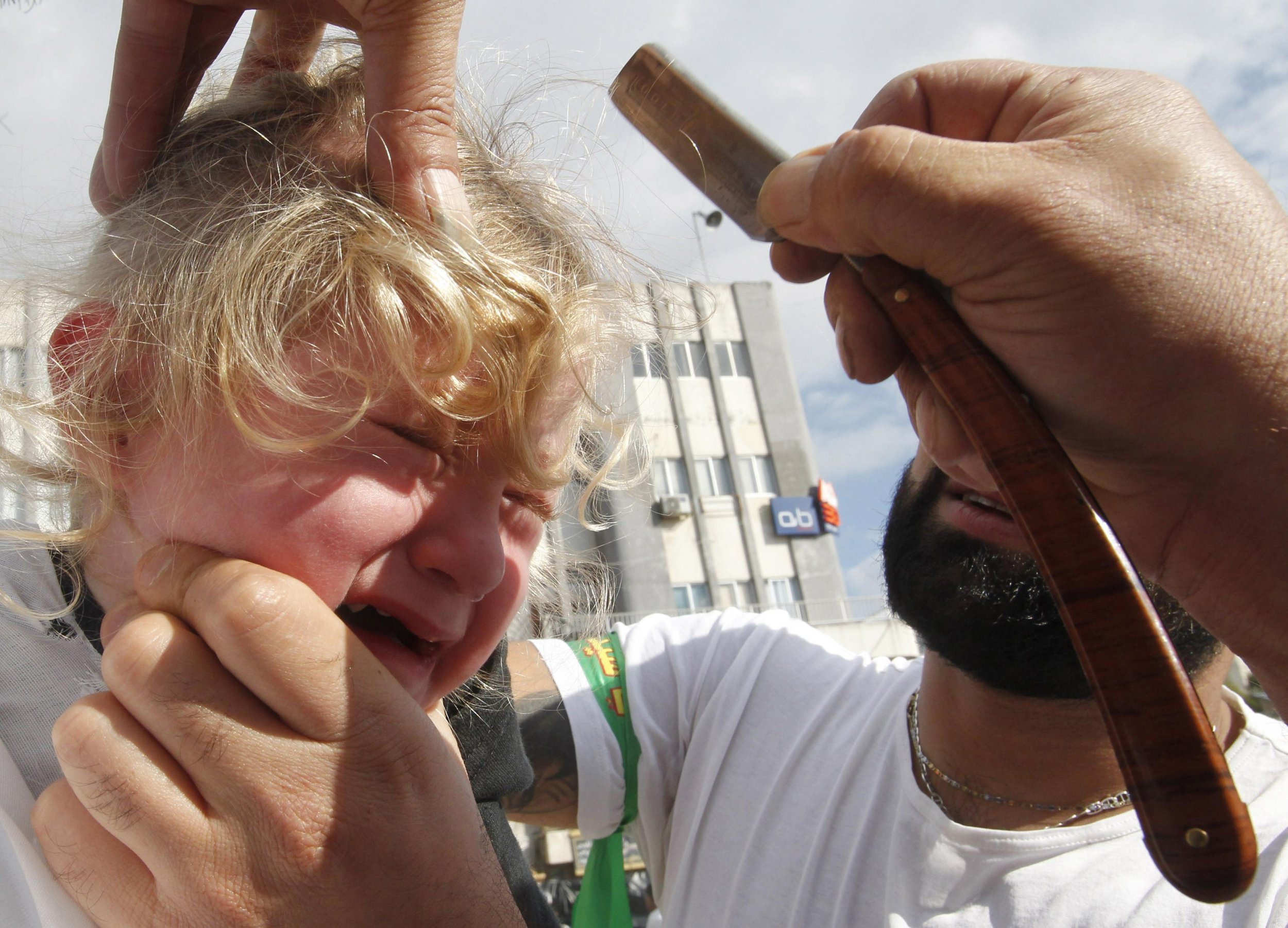
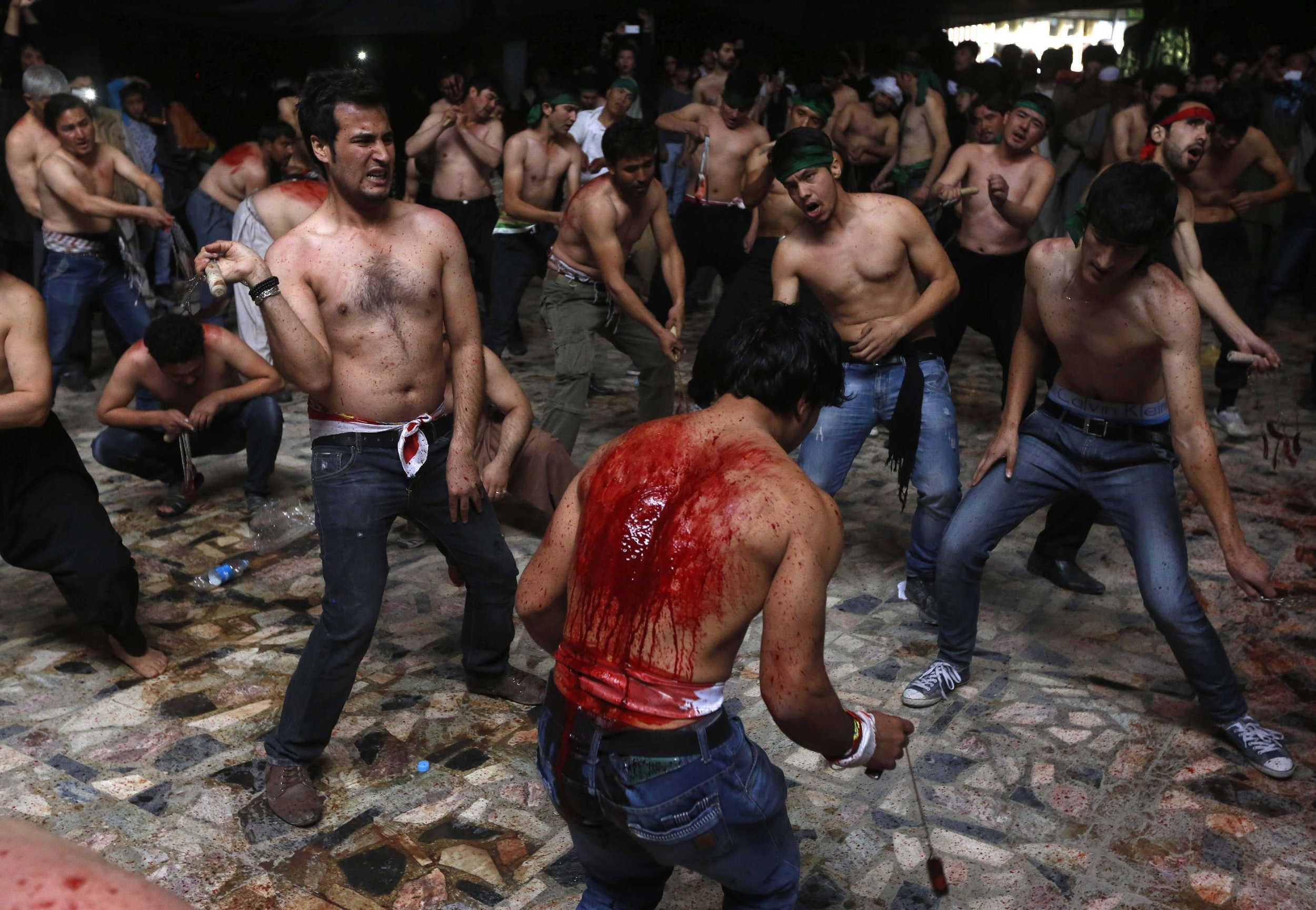
© Copyright IBTimes 2024. All rights reserved.






















